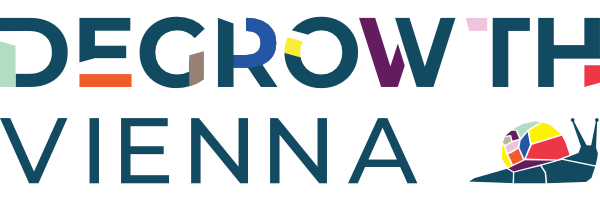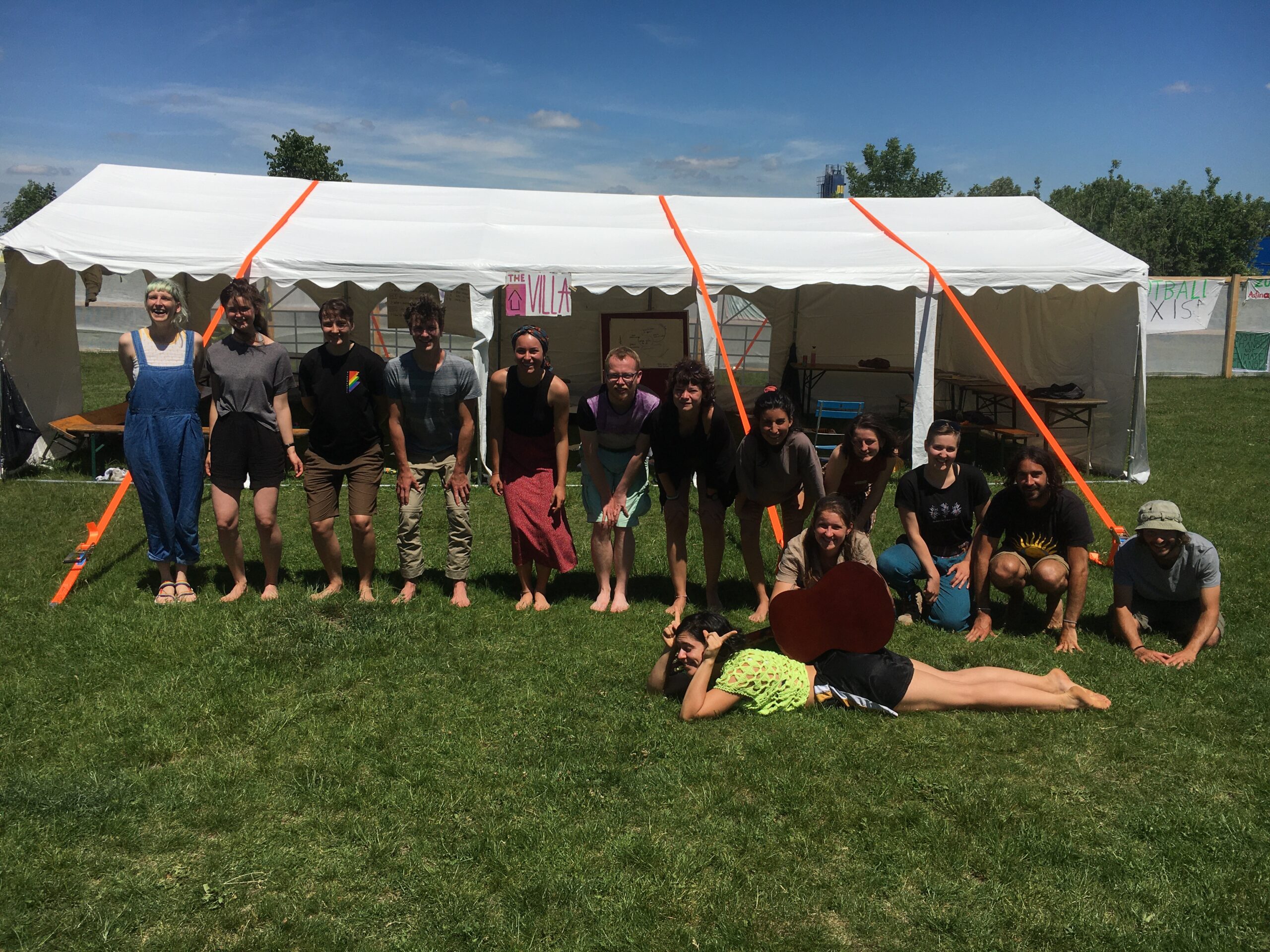Looking back on four days of coming together to learn and exchange
From the 22nd to the 29th of May, the Viennese Klimacamp took place at the LobauBleibt protest camp in Hirschstetten. A week full of workshops, direct action, camping and conviviality unfolded under the trees of the park on Anfanggasse on the northern Bank of the Danube. Including: a 4-day degrowth summer school!
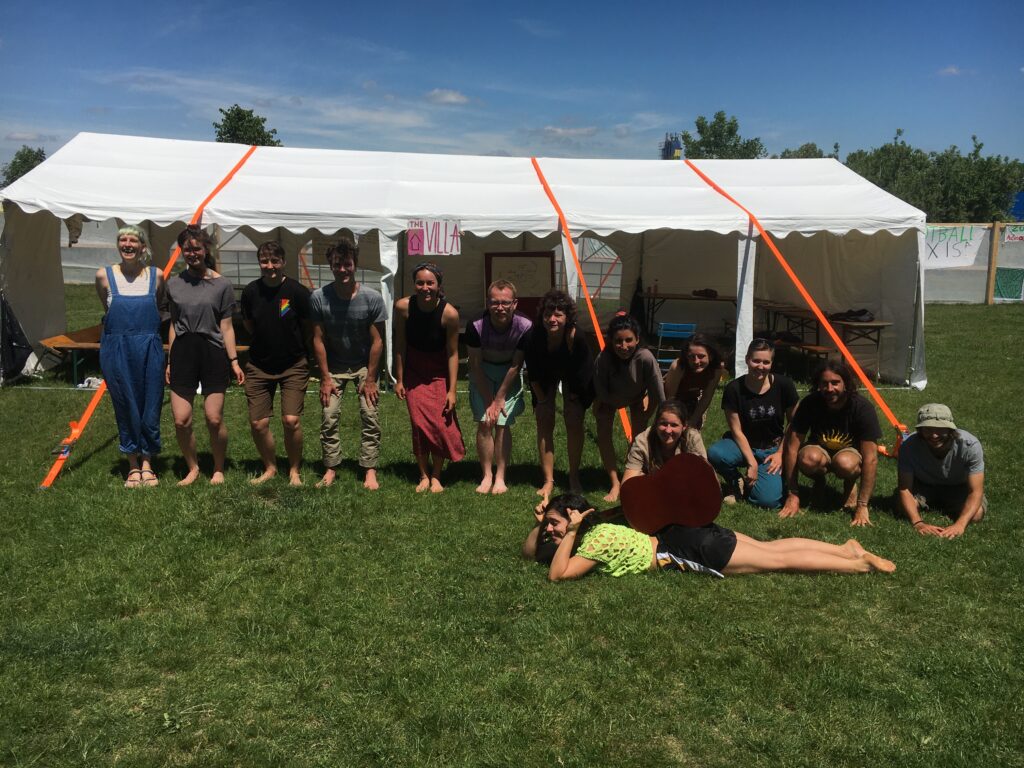
Fairytales of green growth [day1]
We kicked off the first day by getting to know our diverse group and testing our knowledge of economic (de)growth by positioning ourselves physically to show our thoughts in a ‚human barometer‘ game. We discovered that we shared a basic understanding of the economic system and the need for its complete overhaul. We discussed the role that economic growth takes in our economic system, how it came about as an all-encompassing measure for well-being and development and the problems with this focus. Many participants expressed frustration and sorrow at how the growth imperative permeates their personal lives. One wrote:
Others voiced a need for more work-life balance, feeling that they would be happier if they had more free time. Most agreed that happiness in itself is tough, if not impossible, to model. Clearly, a single indicator like the Gross Domestic Product (GDP) cannot measure how happy a country’s citizens are. More sophisticated attempts at measuring this have their faults too. As one participant pointed out: “It’s important to realize that the use of only one quantitative indicator, even such as the Human Development Index, is dangerous. It involves modeling and simplifying human lives to numbers. What model is acceptable? Who is affected by this error? Whose concerns are considered when designing this indicator?”.
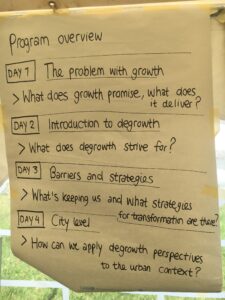
Now what? The degrowth answer [day 2]
On the second day, the time had come for a much-awaited introduction to degrowth. What is degrowth about, why do we need it and what might proposals for making it reality look like? To answer these questions, we first had to dip our toes into ‚green growth‘ discourse and debunk the idea that we can decouple economic growth from environmental harm. We then racked our brains over the kind of policy proposals that could bring us closer to a degrowth future. These included:
– End planned obsolescence
– Cancel debts
– Decommodify public goods and expand the commons
– Shift from ownership to usership
We tried to work out what good and bad consequences these policies would have for society and how the policies may interact among each other. For example: how might the measure ‚scale down ecologically destructive industries‘ affect employment, and what consequences does this have for quality of life? What other proposals like ‚a reduction of paid working hours‘ might be able to balance possible negative effects? This exercise showed us the complexity of implementing changes and spurred some very thoughtful discussion.
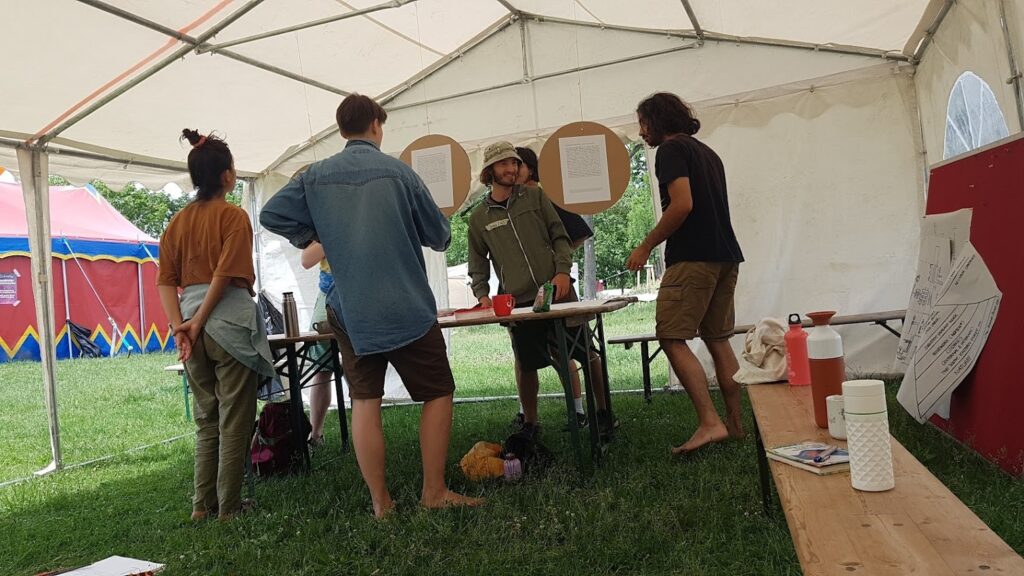
Getting there: strategy [day 3]
Day three was all about strategy. We looked into questions on what is keeping us from making changes, what kind of transformation models strategies can be divided into and what alternatives are already working on the good life for all. To answer the first question, we discussed the ‚imperial mode of living‘ and the relevance of mental infrastructures. Mental infrastructures is a concept to describe that the infrastructures of the world around us (like highways, free trade agreements, fossil fuels) do not just shape policies and business plans, they also shape us, as they live in our heads. We concluded that our lives are heavily shaped by mental infrastructures like competition, success, knowledge and productivity and that nearly all of these relate to our economies’ growth imperative. The things we would like more of, on the other hand, are about togetherness, solidarity, care for another, family and living a meaningful live.
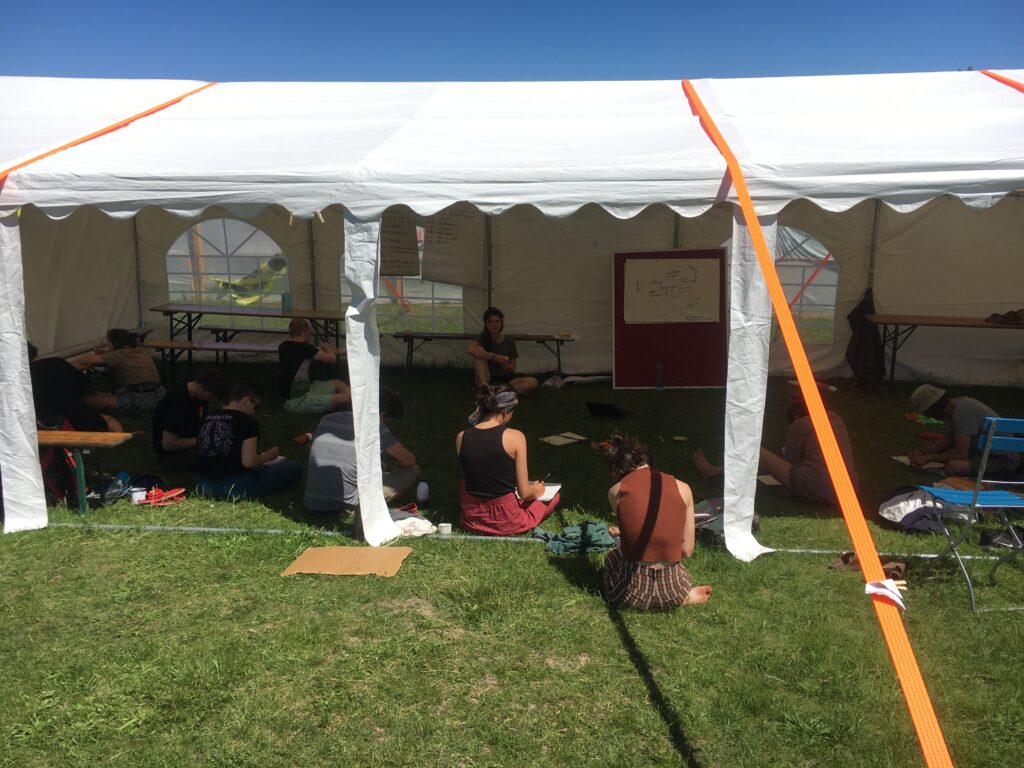
But how can we get to such a utopian future? For this we need strategies. Building on Eric O. Wright and Degrowth Vienna’s forthcoming book ‚Degrowth & Strategy‘ we categorized the strategies underlying existing alternatives, ranging from radical direct actions, such as blocking coal mines and movements resisting extractive industries in the ‘Global South’, over strategies that aim at a transformation of institutions, to niche strategies such as local currencies, food and energy cooperatives and creative commons. Participants also shared their own examples of initiatives working on change. These were organizations they were active in or knew of, such as animal welfare organizations, citizens assisting stranded immigrants on the Polish-Belarus border, urban permaculture projects in Lisbon, Portugal, baby apparel sharing and anti-foodwaste initiatives.
Degrowth & the city [day 4]
The fourth and final day of the summer school was dedicated to applying degrowth to the city level. ‘What might a degrowth city look like?’ we asked ourselves. After introducing our take on the ‚Solidary Degrowth City‘ we shared about problems and projects in the cities we are from, many of which concerned the increasing inaccessibility of affordable housing. Then we took a ‘dream journey’, lying down in the grass, closing our eyes, and imagining to wake up in a degrowth future. We imagined what our surroundings looked like, what we would eat, how we would get from A to B, who were there with us. The drawings of our dreams showed lush green landscape, bicycles, laughter, community spaces, schools and art.
Find out more about what went down at the 2022 climate camp here.
Find information on our book „Degrowth & Strategy – how to bring about social ecological transformation“ here
We want to thank all participants for the wonderful time together and the many insightful discussions and inspiring cooperation!
